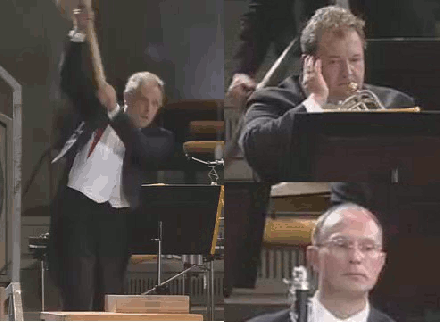For some months now I've had very mild low frequency tinnitus in my right ear. I notice it only when there is total silence. I have a feeling it's permanent but I may be wrong. I am 13 years older than Beethoven was when he died, so I haven't much to complain about!
It set me thinking about our "onlie begetter" who suffered horrendous noises as his deafness progressed. In his own words: " my ears whistle and buzz continually, day and night … such a condition is truly frightful”.
When I first got interested in Beethoven, I was astounded that a deaf musician could actually compose in his head and I imagined that he lived in a world of absolute silence which probably helped his concentration. But his compositional feats are even more amazing when you think about the terrible internal noises he must have endured.
I can't locate any specific information about the actual progress of his tinnitus as opposed to his deafness. I wonder did those sounds disappear in later life. It's hard to listen to the late quartets and not imagine them to have been composed against a background of blissful silence. Well, maybe not the "Grosse Fugue".
Has anyone come across a reference to tinnitus in the composer's later life?
I like to think he was spared that infliction as he got older.
It set me thinking about our "onlie begetter" who suffered horrendous noises as his deafness progressed. In his own words: " my ears whistle and buzz continually, day and night … such a condition is truly frightful”.
When I first got interested in Beethoven, I was astounded that a deaf musician could actually compose in his head and I imagined that he lived in a world of absolute silence which probably helped his concentration. But his compositional feats are even more amazing when you think about the terrible internal noises he must have endured.
I can't locate any specific information about the actual progress of his tinnitus as opposed to his deafness. I wonder did those sounds disappear in later life. It's hard to listen to the late quartets and not imagine them to have been composed against a background of blissful silence. Well, maybe not the "Grosse Fugue".
Has anyone come across a reference to tinnitus in the composer's later life?
I like to think he was spared that infliction as he got older.




Comment